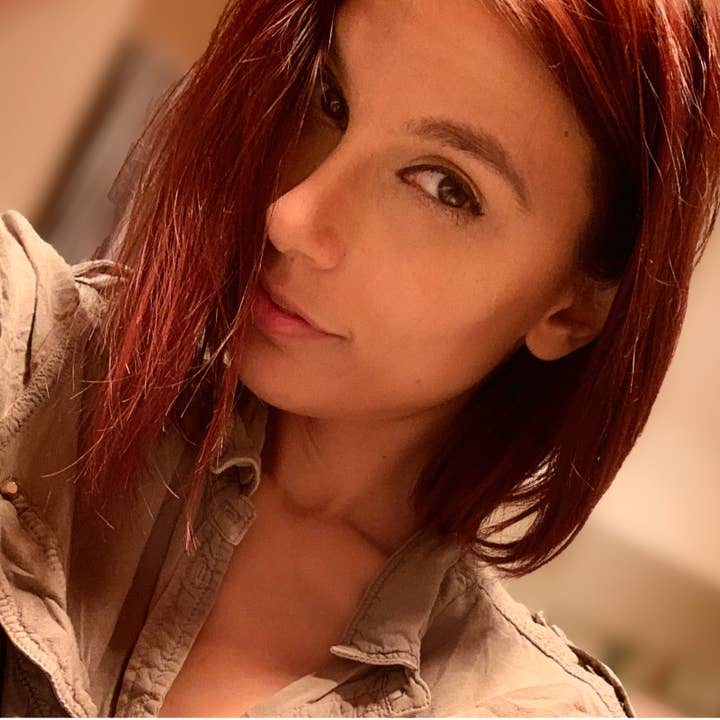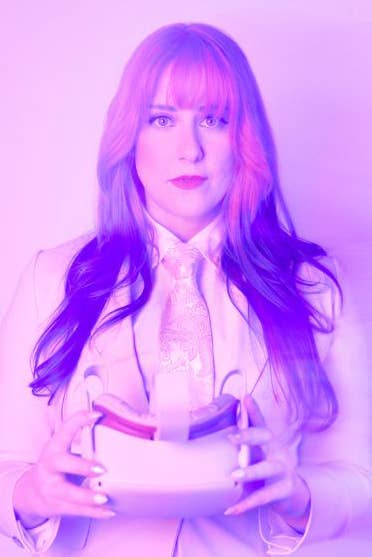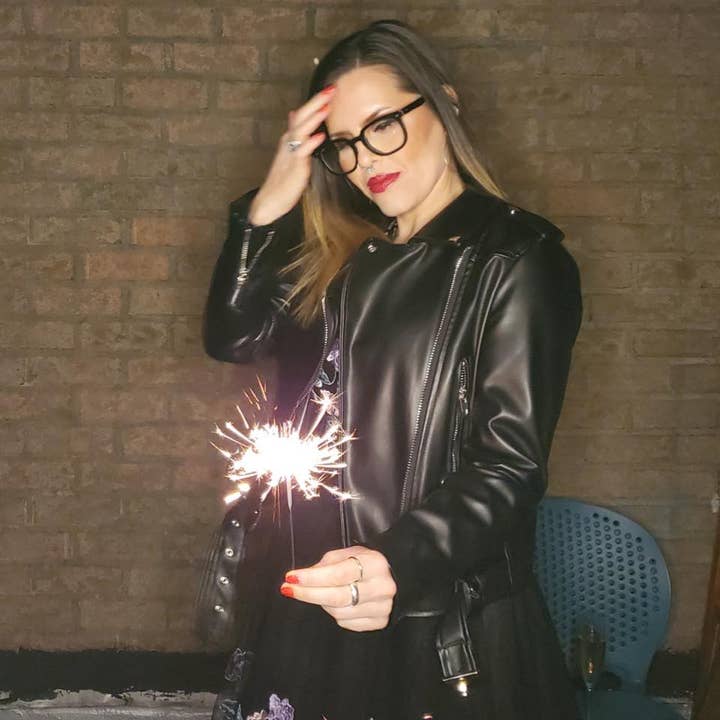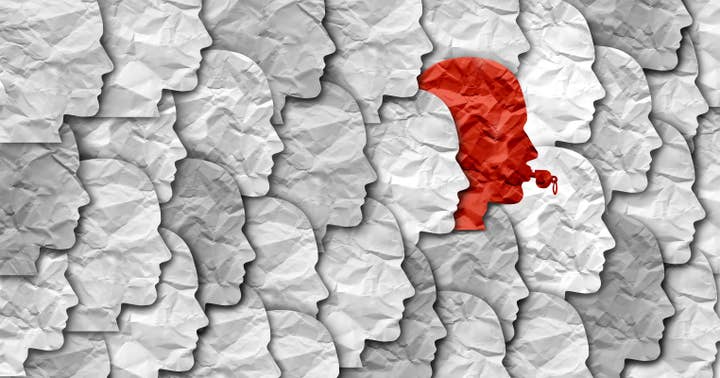How men can help stamp out harassment of women in games
Ashley Blake, Anya Combs and Chantal Ryan offer advice on how to identify and avoid predatory behaviour
Content warning: This article features references to harassment, abuse and sexual assault.
Despite the many cases of harassment and abuse exposed in the games industry over the past few years, and the subsequent calls to address these behaviours, fresh reports continue to emerge from each major event, highlighting the systemic roots of the problems.
Many of those roots were discussed earlier this year at a Reboot Develop Blue session, fittingly titled 'WTF, it's 2023: Conversations we (still) need to have about being a woman in the games industry.' GamesIndustry.biz caught up with the panellists shortly after, and they suggested many ways in which men should change their behaviour to not only prevent this harassment from happening, but also better support and protect the women being targeted.
First and foremost, they highlight that men don't easily recognise the many forms sexual harassment can take, with Chantal Ryan – founder and game director at We Have Always Lived In The Forest, and also an anthropologist – pointing out that "a lot of the microaggressions are from people who don't realise they're being predatory."

By way of example, she shares her experience the day before Reboot Develop Blue, when she attended an industry dinner during which a man spent most of the evening staring at her. Sharing a taxi back to the hotel with this man and a male peer, the former interrupted her by saying, "Your voice is so sexy." Her peer said nothing, even when the comment was repeated after Ryan ignored it.
The other passenger in the vehicle should have told the man to think about what he was saying or recognise that Ryan was not interested or pleased with the repeated, uninvited compliment. But his inaction suggests a deeper issue.
"[The other man] couldn't recognise a guy sexually harassing a woman right next to him," she says. "I don't begrudge him that because I genuinely believe a lot of men don't know how to recognise the signs. Because they're not threatened by things in the same way we are because they don't have to deal with what that threat entails."
Anya Combs, game consultant at BackerKit, sees this from a different perspective: "I think a lot of men just don't want to see it or acknowledge it. This industry is predominantly men, so you're surrounded by men. If I was a man, I would be like, 'that means statistically someone I know, a close friend or an acquaintance, could have hurt or harassed women'... Sometimes we don't want to see what's right in front of us because it's too painful to see. There is a level of validity with that, but it also means you need to do the work to look past that."
"A lot of the microaggressions are from people who don't realise they're being predatory"
Chantal Ryan, We Have Always Lived In The Forest
Ashley Blake, COO of Andromeda Entertainment, agrees: "Some men don't know they're being predators, but some actually do and some go to conferences specifically for those purposes. Predators are intentional. Molestation is very intentional. They go after very weak people. Marginalised folks, queer folks, people of colour – those are the ones that are disproportionately affected.
"The combination of not wanting to see it and knowing how to hide it is very dangerous together. Especially when it comes to the people who are outright attempting it, and not just the people who don't know what they're doing and are a little bit socially awkward."
Combs observes that men in particular need to "do the work" to learn what these behaviours look like, and both avoid displaying them as well as calling out those who do.
"If I were to say to Ashley 'I love your shirt, it's so cute', there's a very different context than a dude you don't know going 'hey, I like your shirt'," she explains. "If your intent is good, that doesn't make you a bad person, but knowing the time and the place, and understanding that compliments at a work function versus being at a bar and trying to pick a chick up – those are two very different contexts."
To that end, our conversation turns to advising men on how they can better support women in the industry.
Educate yourself
When it comes to educating themselves on the many forms of sexual harassment, Ryan acknowledges that men "haven't necessarily had a catalyst to do the work" in the way women have.
"We have done the work while growing up in order to protect ourselves," she explains. "Most girls will have been sexually harassed by the time they're ten or 12. My most dangerous, scariest experiences with older men sexually harassing me were when I was between ten and 14. We do the work because we have to, because that keeps us safe. But men don't need to know what those behaviours look like, what harassment looks like."

Combs adds there are specific educations that other marginalised groups go through: "If you're a young Black person in America, you're taught when you're pulled over by police, you keep your hands on the wheel, you move to get your licence and registration very slowly, you let them know, you communicate, and that's an education that [Black people] go through in order to be safe.
"If you're not seeking that as a non-marginalised group, if you're not learning about that, you just don't have access to it, it's something you have to put the effort into finding."
Part of educating yourself on how these behaviours impact women comes from actually speaking to women, to learn more about their experiences – although the panel emphasise it's crucial this should be with someone you have already established a rapport with, and only if they are comfortable having those conversations.
"Don't just find someone from a panel," Blake says. "If you open with, 'I'd like to chat about these issues, I'd like to learn more, what would you feel comfortable with?', see what she wants to do, let her control if she's willing to help you do this work."
It's also worth attending panels such as the one featuring Blake, Combs and Ryan at Reboot Develop Blue, or the recent roundtable discussion at Develop Brighton that followed Gina Jackson's article for GamesIndustry.biz on why men need to speak up against toxicity targeting women.
Call out toxic behaviours
Blake, Combs and Ryan all encourage men to call out other men's behaviour; this will also help educate those who are unintentionally or unknowingly behaving in a toxic way.
They also encourage people to support the woman being targeted, with Combs suggesting: "If someone says something you think might have been weird, pull [the woman] aside and say 'Are you okay?' and if she's not, help make sure that person isn't around them. Handle it discreetly."
Ryan agrees: "That's only happened to me a few times in my life, but it has moved me completely – particularly when a guy has asked to check if I'm uncomfortable with something."
"[Industry leaders] need to be more mindful of which events they attend. Are they going to clubs or [drinking] events? Could they help shift away from that culture?"
Chantal Ryan, We Have Always Lived In The Forest
She adds that having someone check up on you is validating: "Sometimes we don't know how to take it, or whether we're being too sensitive or misinterpreting something in a more threatening way than it should be interpreted."
Men should also be on the lookout for when women are visibly uncomfortable with any given situation, and intervene where needed.
"If somebody is coming to you and saying, 'I wasn't cool with that, and here's why,' listen to them, internalise it," Combs says.
"The challenge is reading social cues, and I know not everyone can do that. I don't want to demonise someone [who wants to learn and do better but] can't read social cues."
The impact of alcohol
Inevitably, the discussion veers towards networking events and industry parties where alcoholic drinks are in play.
"Some people seem to think if there's alcohol, they can't be held responsible for [their actions]," Combs says. "Alcohol doesn't turn you into a predator – you were already a predator. Do the work to not have a beer and grab someone's ass. It's not that hard."
She adds: "There's a lot of peer pressure at these events to drink, and that is such a powerful thing with that power dynamic. If all the men are doing it, it [feels like] I'm not even allowed in the room unless I'm willing to engage in these behaviours. It's taken me a long time to realise I don't want to be in those rooms."

Blake says that men should avoid offering to buy drinks or exert any sort of pressure that would "lead to intoxication, the loss of faculties, or shift the power dynamic."
"Do not pressure people to drink," she says. "I get asked very often why I don't drink. I have an excuse and I feel comfortable saying I used to be an alcoholic and now I'm sober, but a lot of women don't and that peer pressure is really a lot."
Ryan observes that Western cultures have essentially eradicated most of the social rituals that used to bring communities together, such as dance and music, to the point where drinking together can feel like the last remaining opportunity to bond.
This creates pressure, combined with a fear of missing out on "live or die" networking opportunities where women could make an important connection that changes their career. Ryan encourages the industry to search for new social rituals that might afford these opportunities. The GamesIndustry.biz Academy has previously explored ways to organise inclusive industry events.
Ryan also calls for the industry leaders, people with power, to think about the role they can play in this.
"They need to be more mindful of which events they're attending," she explains. "Are they going to clubs, [to drinking] events? Could they help shift away from that culture, and recognise they're almost part of the problem because people want to reach them? Can they think about putting on events that are safer, more connecting?"
Combs observes the role of alcohol in enabling toxicity is not limited to events: "A lot of companies, especially in the US, have alcohol in the office. Try to encourage people not to do that. Have alternative solutions. Why do you have alcohol in the workplace? It's a workplace."
Keep it professional
The panel reiterates that networking events and conferences are entirely different scenarios to meeting women in your social time, and should be treated as such. While they acknowledge a common fantasy of starting an intimate relationship while travelling for work, everyone at these events is there first and foremost in a professional capacity.
While it is perhaps possible that a genuine relationship could begin from meeting at a work event, this should only be pursued if the woman is interested – something most will make very clear.
"It's a red flag if you're trying to figure out very frequently if a woman wants to have sex with you"
Ashley Blake, Andromeda Entertainment
"It's a red flag if you're trying to figure out very frequently if a woman is interested in having sex with you," Blake says. "You're probably acting in a predatory way, especially if you're not verbalising it.
"If you're frequently the initiator of those situations and women are not coming to you first, that's a really big red flag. We've been taught as a society that men have to be the chaser, but it is not that way. Women are very forward, we're very aware of our sexuality, and especially at professional events, if we want to have sex with you, it will be very clear."
Ryan observes that some women might not know how to make their feelings (or lack thereof) clear, in which case Blake advises men: "Don't push it… Unless a woman comes up to you and says 'Do you want to come back to my room for sex?', do not assume that if a woman invites you to her hotel room, she wants sex."
Avoid microaggressions and imbalances in the workplace
Combs emphasises that, while much of the focus when talking about preventing harassment goes on events, it's equally important to address the microaggressions and unconscious bias that occur day-to-day in the workplace. You can read more about this in our Academy guide on identifying and avoiding unconscious bias.
"If you are sitting in a room in a meeting, don't just assume that the woman is going to take notes," she says, by way of example. "Instill a round robin where everybody takes notes at a different time. That's a very small thing, but boy does it bother me. It used to happen to me all the time."
Blake adds that a red flag she's noticed at studios where she has worked is adjectives like 'emotional' or 'alarmist' being used to describe women, even though these terms are not used for men displaying the same reactions or behaviours.
"Alcohol doesn't turn you into a predator – you were already a predator. Do the work to not have a beer and grab someone's ass. It's not that hard"
Anya Combs, BackerKit
Ryan further reiterates that any comment about someone's body may be unwanted. "There's never a reason to comment on that. I don't compliment people on their bodies, that's not my business. That's a really easy one to avoid."
Blake concludes by urging people to be more aware of their surroundings and the teams they work on.
"If you notice that women and marginalised folks are the ones getting fired more often, if there's a high turnover of those folks at your studio, be wary of that," she says. "If your studio is all white men, there's probably a reason for that.
"If you notice men are being promoted disproportionately and women are not being considered for the same jobs, that's usually indicative of something deeper. Pay rises as well. A culture of transparency about compensation is very important."
Safe spaces for women
Most major companies have groups championing women within their business, and there are an increasing number of external ones as well. It's vital that these continue to offer women a safe space.
"Having a women's issues channel or a culture club dedicated to marginalised voices and getting opinions and their experiences [is important]," Blake says. "If that's not happening [at your company], maybe you can make it happen. Just have a place where [women] can talk."
Ryan adds: "In a women's group I am just a person, whereas in the industry I am always a woman. When I go to my community, I get to be me, with my resumé and my accomplishments. The same goes for the queer community, or communities of different ethnicities."
Ryan also runs the Women Leaders In Games network. For more information on the support this group offers, please email chantal@whalitf.com.
More GamesIndustry.biz Academy guides on working in games
- Resources for victims of sexual harrasment in the workplace
- Tips from the Games and Online Harassment Hotline on stamping out toxicity in the workplace
- What to do if you are harassed in the workplace
- Retaining and fostering women in the games industry
Sign up for the GI Daily here to get the biggest news straight to your inbox

